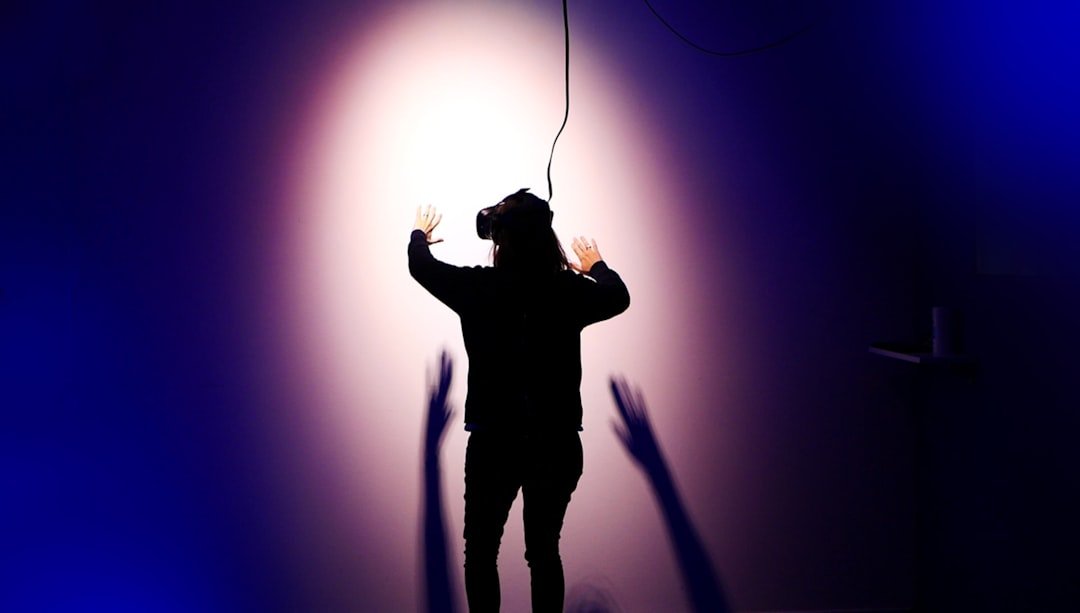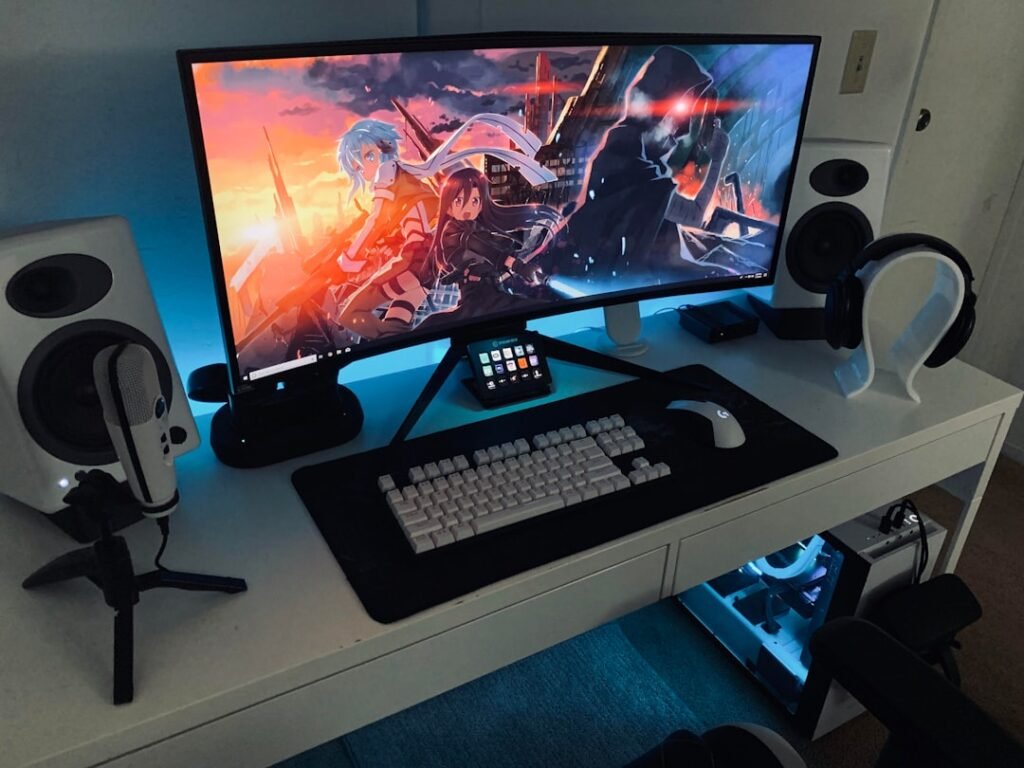Now Reading: The Impact of Gaming on Social Skills: Myth vs Reality
-
01
The Impact of Gaming on Social Skills: Myth vs Reality
The Impact of Gaming on Social Skills: Myth vs Reality

As I delve into the world of gaming, I find myself constantly reflecting on the intricate relationship between this digital pastime and the development of social skills. For many, gaming is often viewed through a narrow lens, primarily focusing on its potential downsides. However, I believe it is essential to explore the multifaceted nature of gaming and its impact on social interactions.
In a society that increasingly embraces technology, understanding how gaming can shape our social abilities is crucial. In this article, I aim to dissect common myths surrounding gaming and juxtapose them with the realities that reveal a more nuanced perspective. By examining these misconceptions, I hope to shed light on how gaming can foster communication, teamwork, and even emotional intelligence.
As I navigate through these points, I invite you to consider your own experiences with gaming and how they may align with or challenge these prevailing beliefs.
Key Takeaways
- Gaming can have a significant impact on social skills and interactions.
- The myth that gaming leads to social isolation and lack of communication skills is not entirely accurate.
- Gaming has the potential to benefit social skills and interactions.
- The myth that gamers are more prone to aggression and anti-social behavior is not entirely true.
- Gaming can have a positive impact on teamwork and cooperation.
Myth: Gaming leads to social isolation and lack of communication skills
One of the most pervasive myths about gaming is that it fosters social isolation and diminishes communication skills. I often hear people claim that gamers are reclusive individuals who prefer the company of their screens over real-life interactions. This stereotype paints a bleak picture of gamers as socially inept, unable to engage in meaningful conversations or form genuine connections with others.
However, I find this perspective overly simplistic and not reflective of the diverse gaming community. In reality, many gamers actively engage in online communities where communication is not only encouraged but essential. Through voice chats, forums, and social media platforms, I have witnessed countless players collaborating, strategizing, and forming friendships that transcend geographical boundaries.
These interactions often require a level of communication that can enhance one’s ability to articulate thoughts and ideas effectively. Rather than isolating themselves, gamers frequently find camaraderie in shared interests, leading to a sense of belonging that can be incredibly fulfilling.
Reality: The potential benefits of gaming on social skills

As I reflect on my own experiences, I recognize the myriad ways in which gaming has positively influenced my social skills. Engaging in multiplayer games has taught me the importance of teamwork and collaboration. In many instances, success hinges on effective communication with teammates, whether it’s coordinating strategies or providing support during challenging moments.
These interactions have not only improved my ability to express myself but have also fostered a sense of accountability towards others. Moreover, gaming has introduced me to diverse perspectives and cultures.
This exposure has broadened my understanding of social dynamics and enhanced my ability to navigate complex social situations in real life. Far from hindering my communication skills, gaming has served as a platform for growth and development in this area.
Myth: Gamers are more prone to aggression and anti-social behavior
Another common myth surrounding gaming is the belief that it breeds aggression and anti-social behavior. I often hear concerns about violent video games leading to real-world aggression, perpetuating the idea that gamers are inherently predisposed to hostility. This narrative overlooks the complexity of human behavior and fails to consider the multitude of factors that contribute to aggression.
In my experience, while some games may contain violent content, they do not automatically translate into aggressive behavior outside the gaming environment. Many gamers, including myself, can distinguish between virtual actions and real-life consequences. In fact, I have found that gaming can serve as a healthy outlet for stress and frustration, allowing me to channel emotions in a controlled environment rather than acting out in real life.
The notion that gamers are more prone to aggression is not only misleading but also undermines the positive aspects of gaming as a form of entertainment.
Reality: The positive impact of gaming on teamwork and cooperation
When I think about the collaborative nature of many games, it becomes clear that they often require players to work together towards a common goal. Whether it’s forming alliances in a strategy game or coordinating attacks in a first-person shooter, teamwork is at the heart of many gaming experiences. Through these interactions, I have learned valuable lessons about cooperation and compromise.
In my own gaming journey, I have participated in numerous team-based challenges where success depended on effective communication and collaboration. These experiences have taught me how to listen actively to others’ ideas while also contributing my own. The ability to work harmoniously with diverse personalities has not only improved my gaming performance but has also translated into my real-life interactions.
I find myself more adept at navigating group dynamics and fostering a spirit of cooperation in various settings.
Myth: Gaming hinders the development of real-life social interactions

Enhancing Social Connections
In my experience, gaming has not hindered my ability to connect with others; rather, it has enhanced it. Many gamers form friendships through online platforms that eventually transition into real-life connections. I have met several individuals through gaming who have become close friends outside of the virtual space.
From Shared Interests to Deeper Connections
These relationships often begin with shared interests in games but can evolve into deeper connections based on mutual respect and understanding.
Reality: How gaming can facilitate social connections and friendships
Reflecting on my own journey as a gamer, I can attest to the power of gaming in facilitating social connections and friendships. Online multiplayer games provide a unique environment where individuals can bond over shared experiences and challenges. The camaraderie built during intense gameplay sessions often leads to lasting friendships that extend beyond the screen.
I recall several instances where I formed meaningful connections with fellow gamers from different parts of the world. Through our shared passion for a particular game, we developed a sense of community that transcended geographical barriers. These friendships have enriched my life in countless ways, providing support during difficult times and celebrating achievements together.
Gaming has proven to be a powerful catalyst for forging connections that might not have occurred otherwise.
Myth: Gamers struggle with empathy and understanding others’ emotions
Another misconception about gamers is that they lack empathy and struggle to understand others’ emotions.
However, I believe this view oversimplifies the complexities of human emotions and overlooks the potential for gaming to foster empathy.
In my experience, many games incorporate narratives that require players to make choices impacting characters’ lives and emotions. These immersive storytelling elements often evoke strong emotional responses, prompting players to consider the consequences of their actions on others. Through these experiences, I have developed a greater understanding of empathy and compassion for others’ struggles.
Reality: The potential for gaming to enhance emotional intelligence and empathy
As I reflect on my own gaming experiences, I recognize how they have contributed to my emotional intelligence and empathy. Engaging with characters facing moral dilemmas or navigating complex relationships has allowed me to explore different perspectives and understand diverse emotional responses. This exposure has deepened my appreciation for the intricacies of human emotions.
Moreover, many multiplayer games require players to collaborate effectively while navigating interpersonal dynamics within their teams. These interactions often involve recognizing non-verbal cues and responding appropriately to teammates’ emotions during high-pressure situations. Through these experiences, I have honed my ability to empathize with others and respond sensitively to their needs—skills that extend far beyond the gaming realm.
Myth: Gaming addiction leads to neglect of social relationships
The notion that gaming addiction leads individuals to neglect their social relationships is another prevalent myth that deserves scrutiny. While it is true that excessive gaming can have negative consequences, it is essential to differentiate between healthy engagement with gaming and problematic behavior. Many people assume that all gamers are at risk of addiction without considering individual circumstances or motivations.
In my own life, I have found that gaming can coexist harmoniously with maintaining healthy social relationships. By setting boundaries around my gaming time, I ensure that it does not interfere with my commitments to friends and family. In fact, many of my friends share similar interests in gaming, allowing us to bond over our shared experiences while also nurturing our real-life connections.
Reality: Finding a balance between gaming and maintaining healthy social interactions
Ultimately, finding a balance between gaming and maintaining healthy social interactions is key to reaping the benefits of both worlds. In my experience, moderation is essential; it allows me to enjoy the immersive experiences offered by games while still prioritizing meaningful relationships outside of the digital realm. By establishing boundaries around my gaming habits, I can engage fully with both my virtual friends and those in my immediate surroundings.
I have learned that open communication with friends and family about my gaming interests fosters understanding and support for my hobbies. This dialogue allows me to navigate any potential conflicts between my gaming pursuits and real-life responsibilities effectively. By striking this balance, I can enjoy the rich social experiences that both gaming and real-life interactions offer without sacrificing one for the other.
In conclusion, as I explore the relationship between gaming and social skills, it becomes evident that many myths surrounding this pastime are rooted in misconceptions rather than reality. Gaming has the potential to enhance communication skills, foster teamwork, facilitate friendships, and even cultivate empathy—qualities essential for navigating our increasingly interconnected world. By challenging these myths and embracing the positive aspects of gaming, we can appreciate its role as a valuable tool for personal growth and social development.
A related article to The Impact of Gaming on Social Skills: Myth vs Reality is Comparing Gaming and Regular Monitors: Which is Better?. This article explores the differences between gaming monitors and regular monitors, discussing the benefits and drawbacks of each. It provides valuable insights for gamers looking to optimize their gaming experience and make informed decisions when choosing a monitor for their setup.
FAQs
What is the impact of gaming on social skills?
Gaming can have both positive and negative impacts on social skills. Some studies suggest that gaming can improve teamwork, communication, and problem-solving skills, while others indicate that excessive gaming can lead to social isolation and poor communication abilities.
Does gaming improve social skills?
Some research suggests that certain types of gaming, such as cooperative and multiplayer games, can improve social skills by promoting teamwork, communication, and collaboration. However, excessive gaming or solo gaming may have the opposite effect and lead to social withdrawal.
Can gaming lead to social isolation?
Excessive gaming, especially when done in isolation, can lead to social isolation and a lack of face-to-face interaction with others. This can have a negative impact on social skills and overall well-being.
What are the potential benefits of gaming on social skills?
Gaming can potentially improve social skills by providing opportunities for teamwork, communication, and problem-solving with others. It can also create a sense of community and belonging for individuals who may struggle with social interactions in other settings.
What are the potential drawbacks of gaming on social skills?
Excessive gaming, especially when done in isolation, can lead to social withdrawal, poor communication skills, and a lack of real-world social interactions. This can have a negative impact on an individual’s ability to develop and maintain healthy social relationships.



























